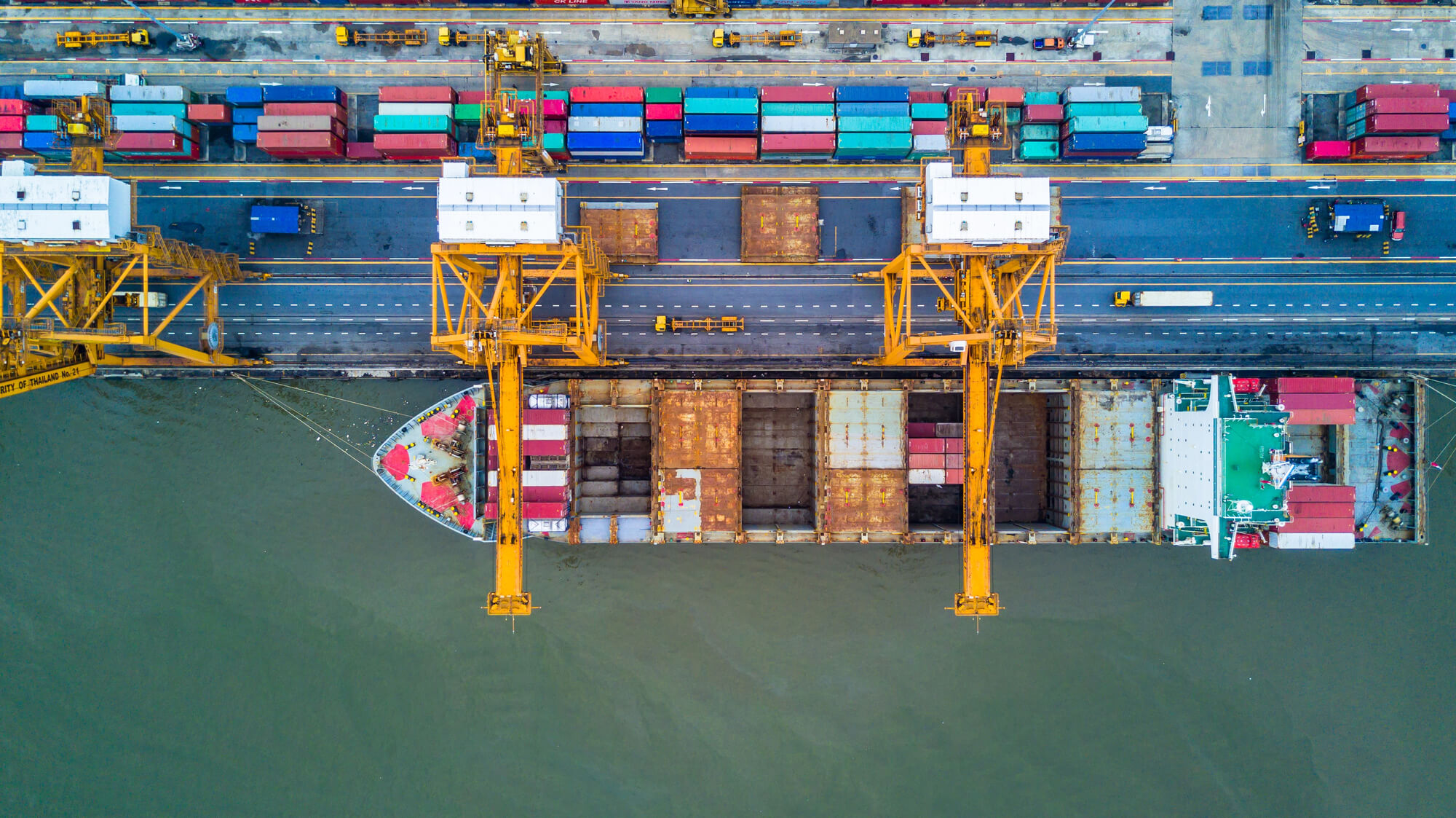Despite being capable of boosting local economies, the establishment of free economic zones always comes at a cost. What are the risks behind creating FEZs in Ukraine and how can they be mitigated?
Free economic zones on Ukraine’s agenda
Although perhaps the majority of Ukrainians do not fully understand the notion of a free economic zone (FEZ), recently they have had many occasions to hear about it from senior Ukrainian officials. On November 5th, in an interview with Interfax-Ukraine, the first President of Ukraine and now the Head of the Ukrainian Delegation to the Minsk Tripartite Contact Group Leonid Kravchuk noted that Ukraine would propose the creation of a FEZ in Donbas region. According to Leonid Kravchuk the proposed zone should operate until 2050 approximately. The Head of the President’s Office Andriy Yermak also talked about creation of a FEZ in Donbas on the same day. He said that the President of Ukraine, Volodymyr Zelensky initiated setting up of a FEZ aimed at attracting investments to the region. Another FEZ is planned in the West of Ukraine. The project is now being discussed among experts and members of parliament, noted Andriy Yermak.
The topic of FEZs was also making headlines one month ago when Ukrainians cast their ballots in the local elections. On October 25th some of them not only voted for their candidates but also took part in a nationwide non-representative poll seeking, among other things, their opinion on the question of “Is it necessary to establish a free economic zone in Donbas?“. Although the poll was promised to have no direct legal consequences, it is unclear whether its results had shaped the opinion of Ukrainian officials who are now bringing the issue of FEZs back onto the agenda. Note that a nationwide representative survey conducted in September upon the request of the School of Political Analysis of National University of Kyiv-Mohyla Academy showed that 35,8% of Ukrainians do not approve of the idea of FEZ in Donbas, 22,4% fully or partially support it and 41,8% do not have a defined opinion. This last result is not surprising given that FEZ is a very broad concept that can cover many things.
The FEZ will likely be the subject of many discussions in the near future. Ukrainians, therefore, need to have a basic idea of what is meant by a FEZ and what consequences may follow from creating one in Donbas or in another part of Ukraine.
Background
The Law of Ukraine “On general principles of creation and functioning of special (free) economic zones” defines FEZ to be a part of the territory of Ukraine with a special legal regime of economic activities and special procedures for application and enforcement of the Ukrainian legislation. The law implies that on the territory of a FEZ preferential customs, taxation, foreign currency/financial and other conditions may be established for business activities of the domestic and foreign investors. FEZs are thus areas designed to offer a number of incentives to attract business and eventually develop economic activity within a FEZ and nearby. To this end, FEZs, among other things, provide for import and export duty exemptions, streamlined customs procedures, liberal foreign exchange policies. According to the Law the terms of the functioning of a FEZ, its status as well as its territory shall be determined by a special law for each FEZ. The Office of the President noted earlier that at this stage an intention is to create FEZ on the Ukrainian government-controlled territory of Donetsk and Luhansk oblasts only.
More than a dozen of FEZs have been created in Ukraine, with “Crimea”; “Azov”; “Zakarpattia”; “Interport-Kovel”; “Mykolaiv” “Porto Franco”; “Rennie” being some of them. The mentioned zones vary in size but are more similar than different when it comes to the terms of their functioning. However, the regime under which business operates in Ukrainian FEZs was not set in stone. When FEZs were established, they provided a lot of privileges to businesses. When it became clear that FEZs fail to live up to the high expectations of their creators, these privileges were cancelled. FEZs not only cost Ukrainian taxpayers about 1% of GDP per year but also distorted markets. Therefore, in March 2005 the Law of Ukraine “On making amendments to Ukraine’s law on the state budget of Ukraine for 2005 and several other policy documents of Ukraine” cancelled all favorable customs and tax regimes of entrepreneurial activity on the territories of FEZs.
Advantages come at a cost
FEZ “Crimea” was created in 2014 by The Law of Ukraine “On Creation of the Free Economic Zone “Crimea” and Peculiarities of Exercising Economic Activity in the Temporarily Occupied Territories of Ukraine”. This law established a free customs zone allowing for certain customs privileges. Although intended to facilitate the functioning of Ukrainian enterprises on the occupied peninsula, the FEZ “Crimea” has come under criticism for facilitating illegal activities. One of the concerns that have been raised in relation to the FEZ “Crimea” is that its creation resulted in the increase in counterfeiting of goods. Softened customs controls and relaxed oversight were instrumental in aggravating the problem of fake goods in the FEZ “Crimea”.
This is not to say, however, that abuses of intellectual property rights (IPR) has been the most prominent concern about FEZ “Crimea”. The zone has also been vulnerable to money laundering, tax evasion, distortion of the markets, illicit trade in tobacco and corrupt practices. However, the focus of the present article is IP rights abuses.
As for the latter, Ukrainian experience of creating the FEZ “Crimea” is not unique. Despite having an effect of promoting economic growth FEZs have often acted as a magnet for counterfeit activities in other jurisdictions. The relationships between FEZs and such activities have been studied in detail by the world’s largest business organization – International Chamber of Commerce (ICC) as well as the Organization for Economic Cooperation and Development (OECD), and the European Union Intellectual Property Office (EUIPO).
In its report “Controlling the Zone: Balancing facilitation and control to combat illicit trade in the world’s Free Trade Zones” published in 2013 ICC noted that although not all FEZs facilitate illegal activity, they are often misused by criminals to produce, distribute, and sell fake goods. In this respect, ICC provided case studies from FEZs such as Jebel Ali Free Zone in Dubai and the Kenya Export Processing Zone illustrating that they are regularly exploited by criminals to counterfeit goods. A recent study by the OECD and EUIPO confirms these findings. In its report “Trends in Trade in Counterfeit and Pirated Goods, Illicit Trade” published in 2019 the OECD and EUIPO stated that the share of counterfeit goods from countries in the territories of which the 20 biggest FEZs are located is twice as large as from countries that do not have any FEZs. The reports suggest that establishment of one FEZ on average results in a 5.9% increase in the value of counterfeited goods.
The reasons behind rising counterfeit production are limited oversight and good infrastructure typically offered by FEZs to counterfeiters. Indeed, FEZs often enable criminals to conduct their illegal activities with little or even no risk of IPR-related enforcement. At the same time they tend to have above-average infrastructure where tenants can make use of logistics services, office space and other facilities. It is also noteworthy that countries that have a high level of corruption and weak IPR enforcement are most vulnerable to the problem of fake goods.
Should Ukraine abandon the idea of creating a FEZ?
Despite all pitfalls associated with the creation of FEZs and, in particular, the existing correlation between the number of FEZs and increase in the volume of fake goods, countries continue creating them. Their reasons are not difficult to understand. When establishing FEZs the governments expect investors to create jobs, boost exports, build productive infrastructure. Such expectations are often justified. For example, there are estimates that export-processing zones in the Dominican Republic had been instrumental for the creation of more than 100,000 manufacturing jobs in the country.
The instant question, however, is – will such expectations materialize in the case of Donbas region? While it is not an ambition of this article to answer this question, I doubt that the creation of a FEZ in Donbas is likely to bring the expected efficiencies. Indeed, as some experts have already suggested it seems unlikely that investors would be lured in the region known for its lack of stability. This, however, does not render pointless the question as to whether Ukraine should create FEZs at all. This question should rather be high on the government agenda.
Policy recommendations
In an effort to fight counterfeiting and piracy, ICC launched Business Action to Stop Counterfeiting and Piracy (BASCAP) project, which, among other, seeks ways of mitigating the negative effects stemming from the creation of FEZs. In the already mentioned “Controlling the Zone: Balancing facilitation and control to combat illicit trade in the world’s Free Trade Zones” report BASCAP came up with a set of recommendations for legislative and regulatory improvements intended to achieve this goal. And while the report was published in 2013, the majority of its recommendations are still relevant. If the Ukrainian decision-makers decide to create FEZ providing for relaxed customs controls, it would be wise, among other things, to consider the following issues underlined by the ICC:
- Improving cooperation between Customs authorities and FEZ authorities;
- Enabling Customs with almost unrestricted rights to monitor day-to-day business operations taking place in FEZ;
- Providing effective training programs to Customs officials on IP enforcement;
- Simplifying process for notifying trademark holders of infringement;
- Ensuring that any new trade agreements signed by Ukraine contain provisions intended to prevent the abuse of FEZs by criminals who violate IP rights (e.g. by producing counterfeit goods)
AlthoughI am skeptical about the idea of creating a FEZ in the Donbas region, I nonetheless believe that it should not be abandoned completely. This is even more so when it comes to the establishment of FEZs in other regions of Ukraine. FEZs are potentially capable of boosting Ukraine’s economy, provided an appropriate regulatory and legislative framework is in place and properly implemented preventing them from being misused for illegal purposes.
Attention
The author doesn`t work for, consult to, own shares in or receive funding from any company or organization that would benefit from this article, and have no relevant affiliations



